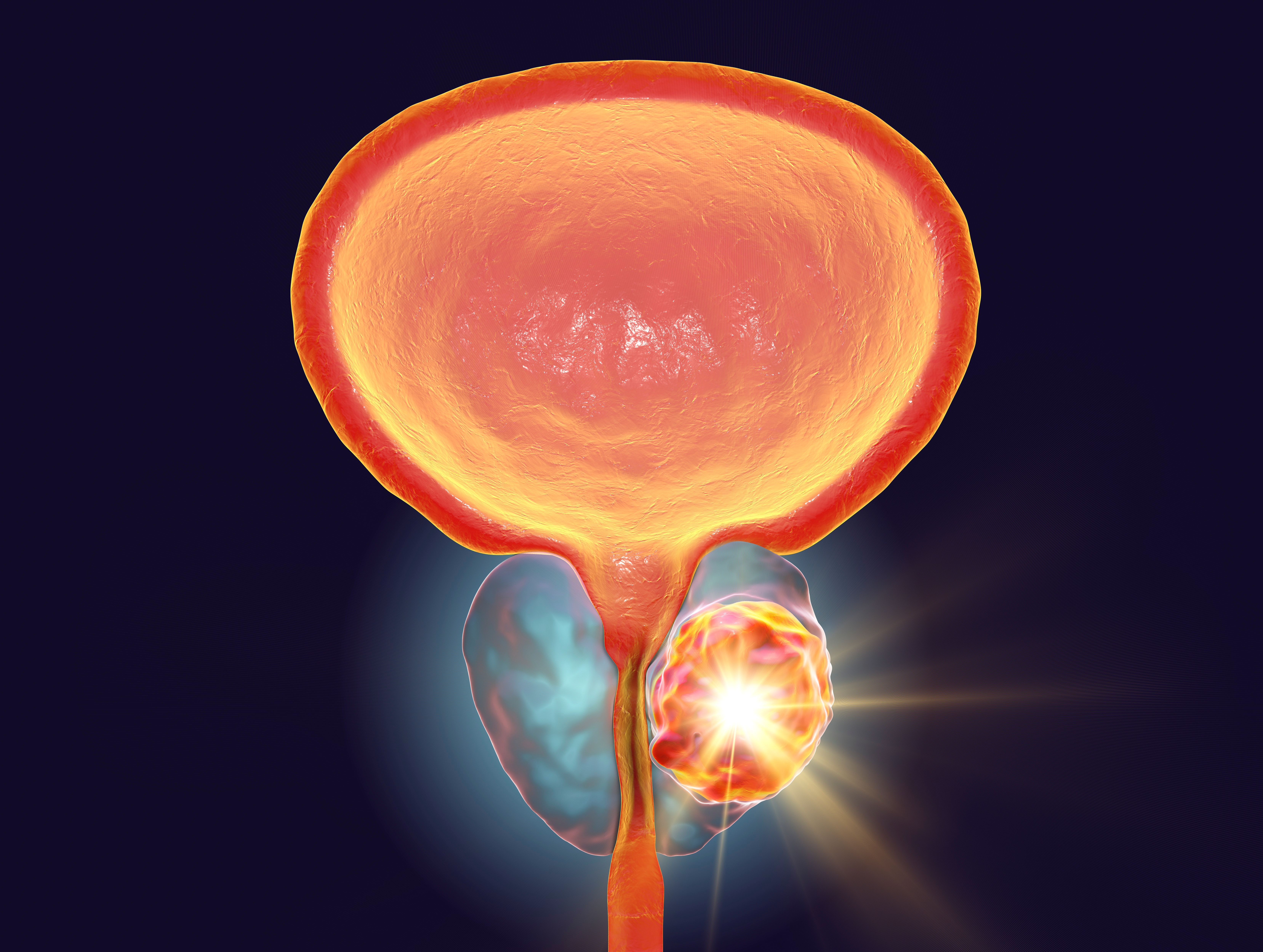Adding Darolutamide to ADT May Reduce Hospitalizations But Longer Stays in mHSPC
Patients with metastatic hormone-sensitive prostate cancer treated with darolutamide plus androgen deprivation therapy and docetaxel had lower rates of hospitalizations but marginally longer lengths of stay compared with those treated with placebo, androgen deprivation therapy, and docetaxel.
Conceptual image for prostate cancer treatment, 3D illustration showing destruction of a tumor inside prostate gland: © Dr_Microbe - stock.adobe.com

Treatment with darolutamide (Nubeqa) for metastatic hormone-sensitive prostate cancer was associated with a lower rate of hospitalization but a longer length of stay compared with treatment with placebo, according to a study presented at the 2024 ASCO Genitourinary Cancers Symposium.
Findings from the study also demonstrated that a lower rate of hospitalization was observed after treatment with docetaxel as compared with during docetaxel treatment.
“Treatment with docetaxel may be linked to an increased number of hospitalizations (approximately 2.4 times greater hospitalization rate),” the researchers wrote in the poster. “However, for those hospitalized during treatment with docetaxel, their [length of stay] is shown to be similar in length to those who are hospitalized post-docetaxel use.”
The first 4 months of treatment, during which patients received docetaxel, were associated with increased hospitalization for any cause and for adverse events. Treatment with darolutamide was linked with a numerical reduction in hospitalization rates per year for any reason during docetaxel administration (0.75 days; 95% CI, 0.61-0.88) vs placebo (0.91 days; 95% CI, 0.75-1.07). This was also observed after docetaxel (0.31 days; 95% CI, 0.26-0.37) compared with placebo (0.38 days; 95% CI, 0.31-0.45). Researchers observed a similar trend for adverse event-related hospitalizations.
Regression models estimated that the all-cause hospitalization rate was 2.39-times (95% CI, 2.11-2.70) greater within the first 4 months of treatment compared with after treatment. These models resulted in similar results for adverse event-related hospitalizations (rate ratio = 1.89; 95% CI, 1.63-2.19).
Compared with placebo, darolutamide was associated with a marginally longer length of stay per hospitalization (+1.90 days). Results were similar when assessing the length of stay related to adverse events (+1.67 days).
“Our analyses indicate [length of stay] was not found to vary during and post-treatment with docetaxel in ARASENS, which suggests that if the increased hospitalization rate during docetaxel treatment was attributed to docetaxel use, docetaxel does not lead to more severe hospitalizations requiring a longer [length of stay],” the researchers wrote in the poster.
Researchers used data from the ARASENS trial (NCT02799602) to compare rates of hospitalizations and length of hospital stay per patient either for any reason or related to adverse events during or after treatment with docetaxel. The objective of the ARASENS trial was to assess the addition of darolutamide to docetaxel and androgen deprivation therapy (ADT) for patients with metastatic hormone-sensitive prostate cancer. This particular study assessed data from 651 patients randomly assigned to darolutamide, docetaxel, and ADT and 654 patients assigned to placebo, docetaxel, and ADT.
In this study, researchers used mixed effects negative binomial regression to estimate length of stay and time-varying rate of hospitalization by patient. Researchers considered listings to be duplicates if patients’ records had the same start date, and they condensed them into one visit with the latest end date. Records would be combined into one visit if patients had multiple records within overlapping time periods.
Researchers considered a constant hospitalization rate assumption inappropriate since docetaxel is administered to patients for 6 cycles, which would take approximately 4.14 months, according to the poster. Patients who were hospitalized within and after the first 4 months of treatment were grouped together. In addition, length of stay was assumed to be time invariant.